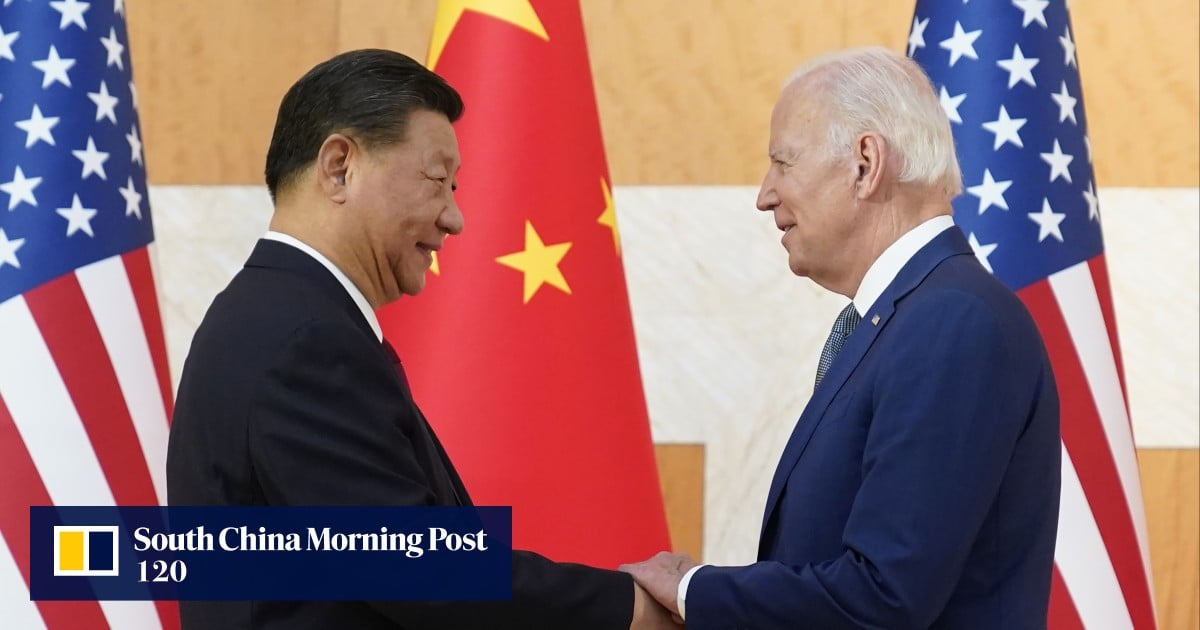
So far, 36 countries have backed the initiative, pledging to come together next year to explore ways to implement and improve new regulations on the matter.
In October, the Biden administration also announced requirements for the approval of advanced AI products. Under the new rules, such initiatives must receive federal government certification, ensuring they cannot be repurposed for creating biological or nuclear weapons.
AI deal shows China, US can cooperate on tech rules despite rivalry: analysts
AI deal shows China, US can cooperate on tech rules despite rivalry: analysts
Additionally, the People’s Liberation Army of China has been for years exploring ways to improve autonomous weapons systems through the integration of advanced AI technologies.
Experts interviewed by the Post welcomed the inclusion of this issue in the list of priority agendas for the Biden and Xi meeting.
“It is essential to keep a human in the loop in nuclear command and control given some of the problems we’ve seen so far with AI,” said Bonnie Glaser, managing director of the German Marshall Fund of the United States.
Oriana Skylar Mastro, affiliated with Stanford University’s Freeman Spogli Institute for International Studies, said that as militaries increasingly integrated AI, one of the initial agreements between the parties should be to avoid automating nuclear command and control systems.
Mastro noted that currently, human operators handled decision-making and launch procedures, “but there is a discussion about automating, having machines that can automate parts of these processes”.
AI poses ‘extinction’ risk comparable to nuclear war, pandemics: experts
AI poses ‘extinction’ risk comparable to nuclear war, pandemics: experts
She also said although Biden and Xi were likely to agree on sustaining nuclear dialogues, talks on nuclear arms control would not happen this time.
China was very “sensitive” about the concept of arms control, she noted, as it had “an arsenal much smaller than the United States”.
“They’re unwilling to engage in arms control with the US, [and] I don’t think that position will change.”
Although praised, dialogue on AI falls short of indicating a broader consensus on other military matters. China has already signalled to the US that it intends to restore military-to-military dialogue channels, but it still defends positions that are radically different from those adopted by Washington.
A source informed the Post that the US-China joint statement remained unfinished, with diplomats at odds over language concerning the conflicts in Ukraine and Israel.
Additionally, an agreement has not been reached on Taiwan, which is set for presidential elections in January, and the PLA Navy’s activities in the South China Sea, affecting neighbouring countries like the Philippines.
Yet, a consensus has been reached on less contentious issues, including increasing daily US-China flights to improve person-to-person cooperation, implementing stricter regulations for overseeing and penalising laboratories in China associated with fentanyl production, and announcing collaborative research and development of public health policies.
